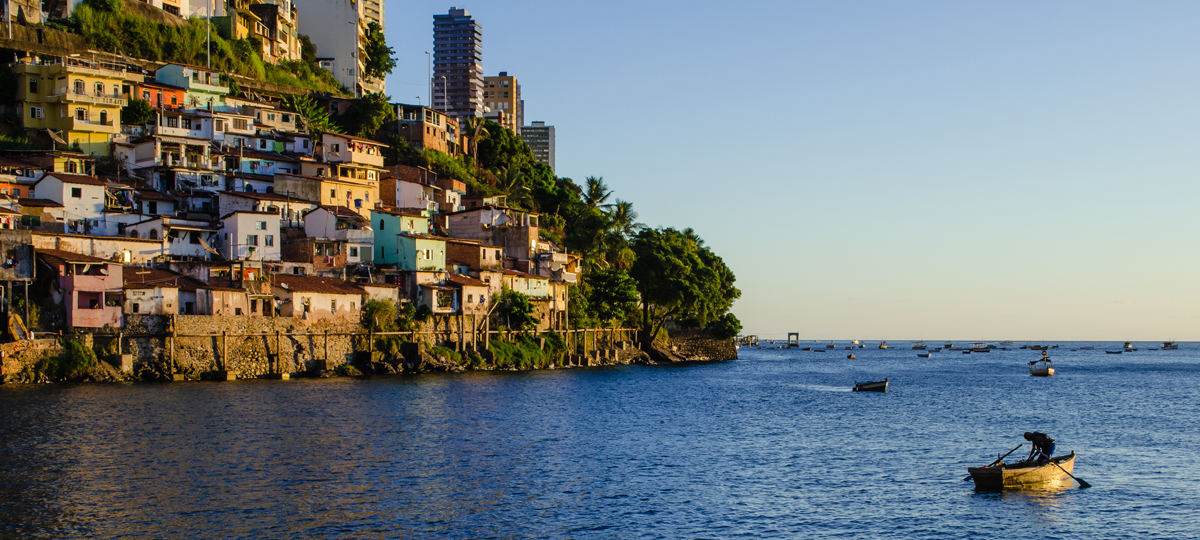BRAZIL TRAVEL TIPS
Time Zone
UTC-5 in Rio Branco. UTC-4 in Manaus. UTC-3 in Belem and Sinop. UTC-3 in Sao Paulo and Fernando de Noronha.
Language
The official language of Brazil is Portuguese.
Currency
The currency is the Brazilian Real.
Tipping
Tipping at restaurants and other service establishment is usually included at 10%. This charge is technically not obligatory but usually paid. Providing a larger tip or round up is acceptable, but not expected. Gratuities for guides and drivers are not included unless otherwise stated.
Weather
Best time to go to Brazil
Top destinations: Rio de Janeiro, Iguassu Falls, Salvador
Brazil is an all year round destination made up of several different ecosystems and climates which mostly offer good weather year-round. Hottest months are from December to March, and Brazil’s peak summer, and high season is between Christmas and Carnival (in mid-February or early March). Brazil’s spring (September to November) is a great time to visit taking advantage of warm days in São Paulo, Iguaçu, and Rio, and tropical heat everywhere else. Another good period for a visit is after Carnaval (early to mid-March, depending on the dates) through May, when you can take advantage of low-season prices, particularly in hotels, while still enjoying good weather. Ultimately there are not months where weather is so bad that it deters travelers, even during the “winter” months of June-August there are picture perfect beach days in Rio and even on the coldest days it never freezes.
Northeast
The Northeast (from Salvador north) is warm year-round, often with a pleasant breeze coming off the ocean. Temperatures hover between the upper 20s to mid-30s Celsius (low 80s and mid-90s Fahrenheit). The winter months (June-July) are slightly wetter, but even then the amount of rain is limited -- a quick shower that cools things down briefly before giving way to more sunshine.
Amazon
Amazon, located closer to the equator is generally hot and humid year-round, with temperatures hovering around the mid- to high 30s Celsius (mid-90s to low 100s Fahrenheit). The dry season lasts from June to December and is often called "summer" by the locals as it is hot and sunny. As the rivers recede, beaches and islands reappear. The wet season typically runs from December to May and is referred to as "winter." The humidity is higher in the rainy season, building up over the course of the day to produce a heavy downfall almost every afternoon. Even then, however, mornings and early afternoons can be clear and sunny.
Pantanal
The Pantanal also has distinct seasons with advantages for each.
The climate is tropical in Pantanal, the summers are hot (around 32ºC) and winter is cool and dry, averaging 21ºCs. November to March are the rainiest months and June to August are the driest. The climate can be divided into four seasons: dry season (June-October), rainy season (November to December), summer – wet season (January-March) and spring – intermediate season (April and May). The Pantanal can be visited year-round. The driest months between June and October, are best for wildlife viewing, particularly for larger mammals.
Southern Brazil:
São Paulo has a similar climate to Rio's, hot in the summer and mild in winter. As São Paulo sits atop a plateau at approximately 700m (2,300 ft.) of elevation it can get pretty chilly, with lows June through September sometimes reaching 12°C (54°F). South of São Paulo, things get even colder in the winter. In Florianópolis, many restaurants and even some hotels shut down for the winter season. Also, in the mountain resort of Petrópolis and the historic towns of Ouro Preto and Tiradentes, the winder months can bring temperatures down to (5°C/41°F), which is pretty much as cold as it gets.
Health
No immunisations are required for your trip to Brazil. Yellow fever vaccination certificate is not required.
While safe in most major cities, it is best to avoid drinking tap water.
Avoid eating food prepared by street vendors and salads or any raw foods.
If you wear prescription glasses, it is advisable to bring an extra pair
Always use sunscreen lotion even in cloudy days
For up to date information on latest health and vaccination recommendations, please contact your doctor.
For up to date information on latest health and vaccination recommendations, please contact your doctor.
Electricity
110 volts, 60 cycles AC.
Arrival and Departure Formalities
According to Brazilian Immigration regulations, every foreign passenger entering the country must have a passport with a time validity of at least 6 months from the day of arrival.
A valid tourist Visa is required for citizens from United States, Canadian, Australian and the UK. Tourist visas to Brazil are issued by Brazilian Consulates throughout the world. To determine the assigned Consulate General’s jurisdiction for your residence, please click here.




